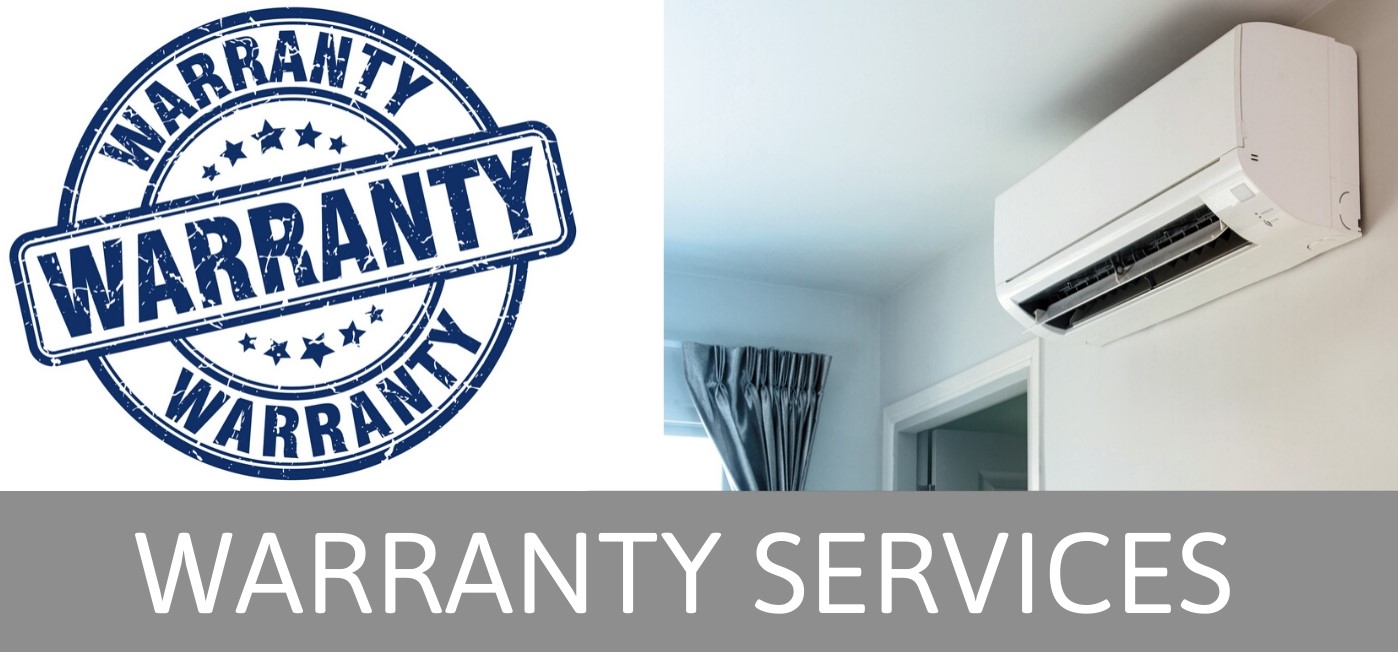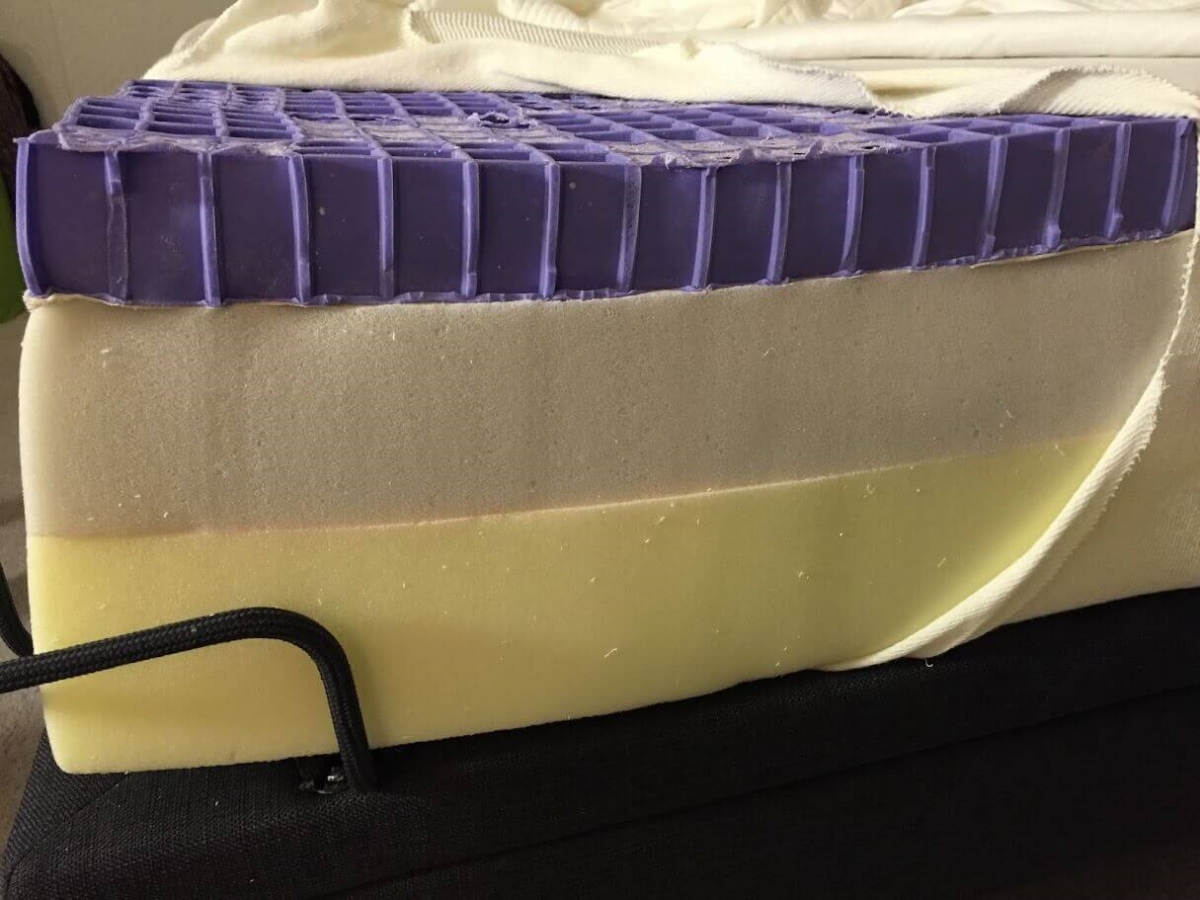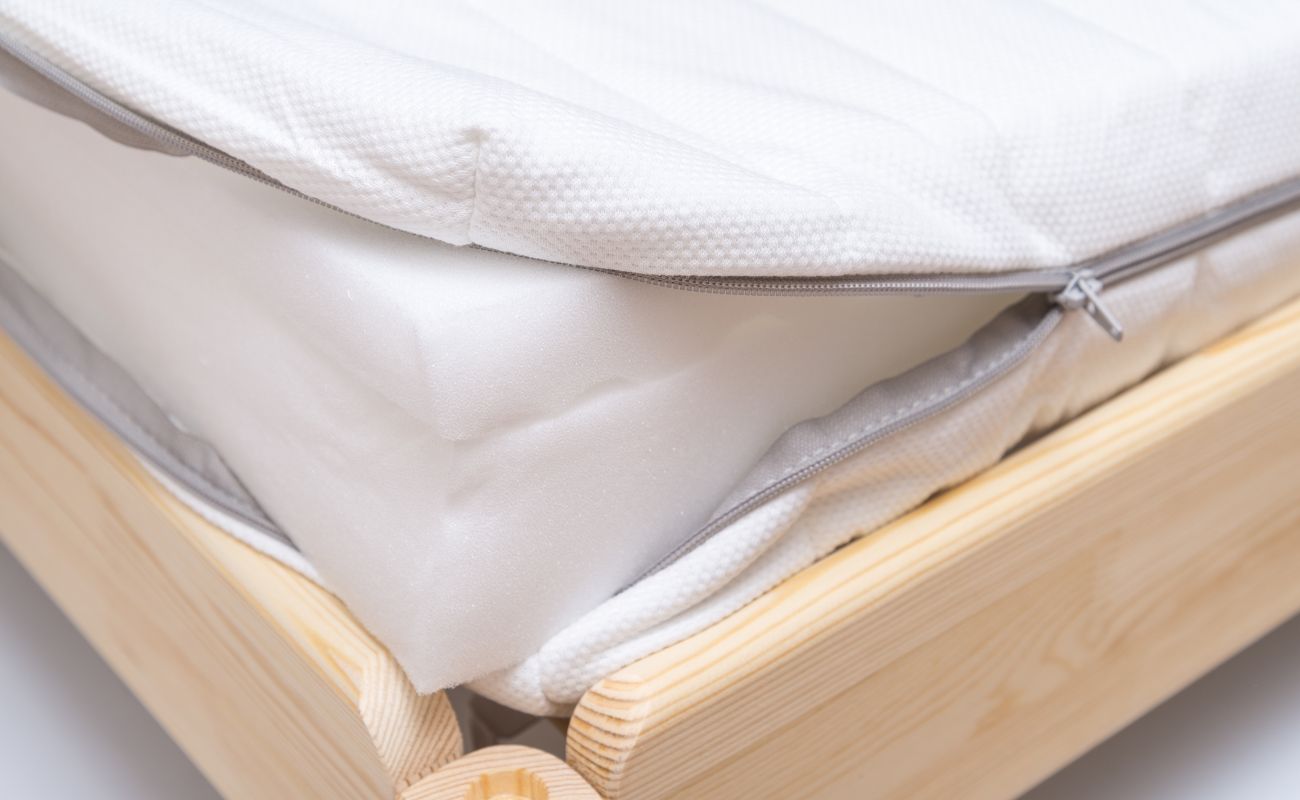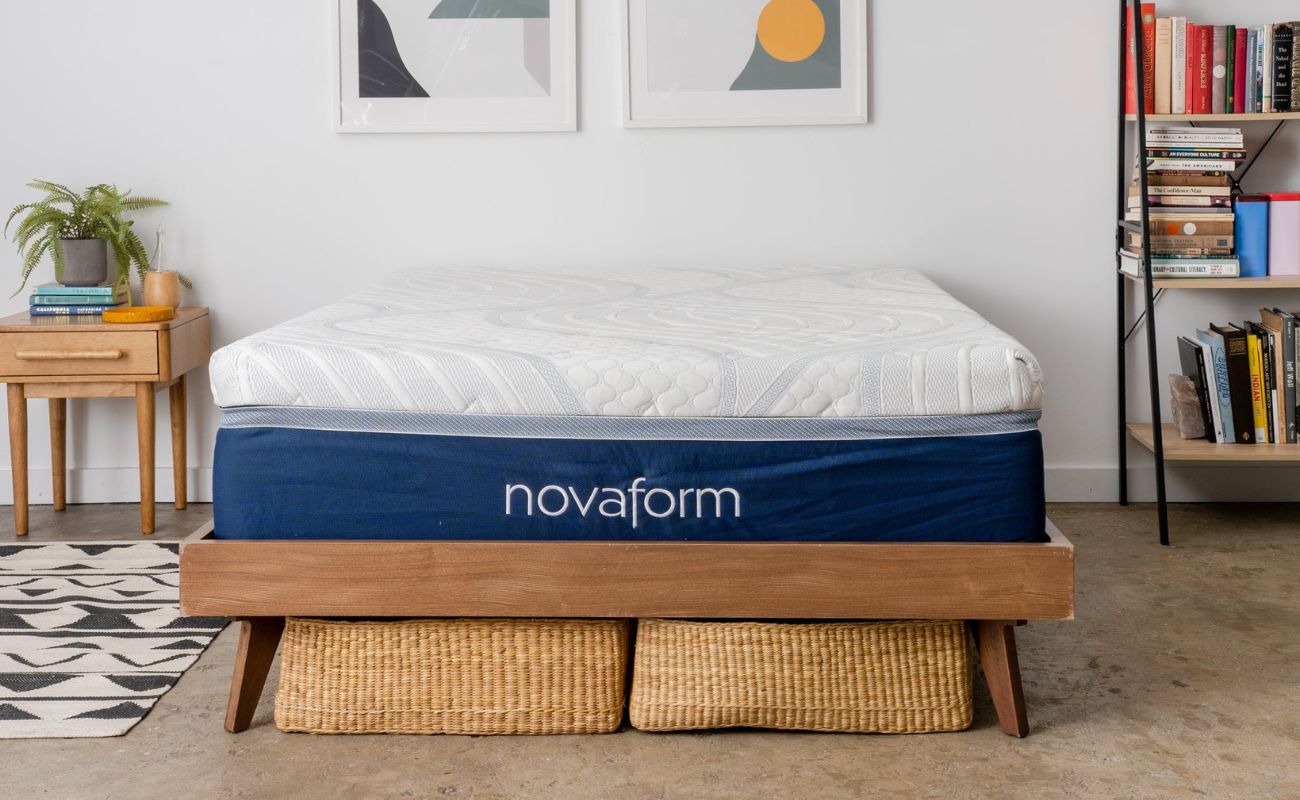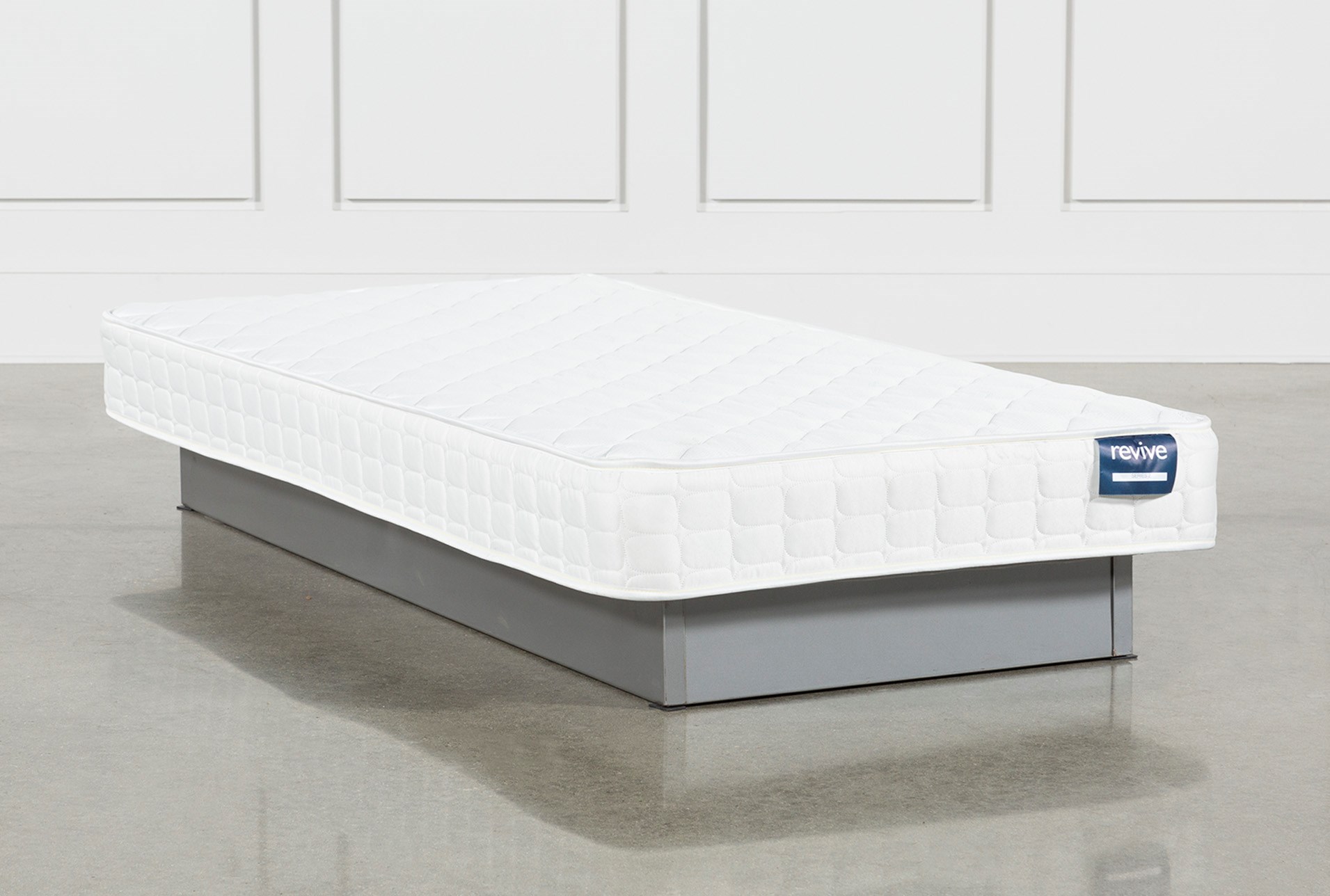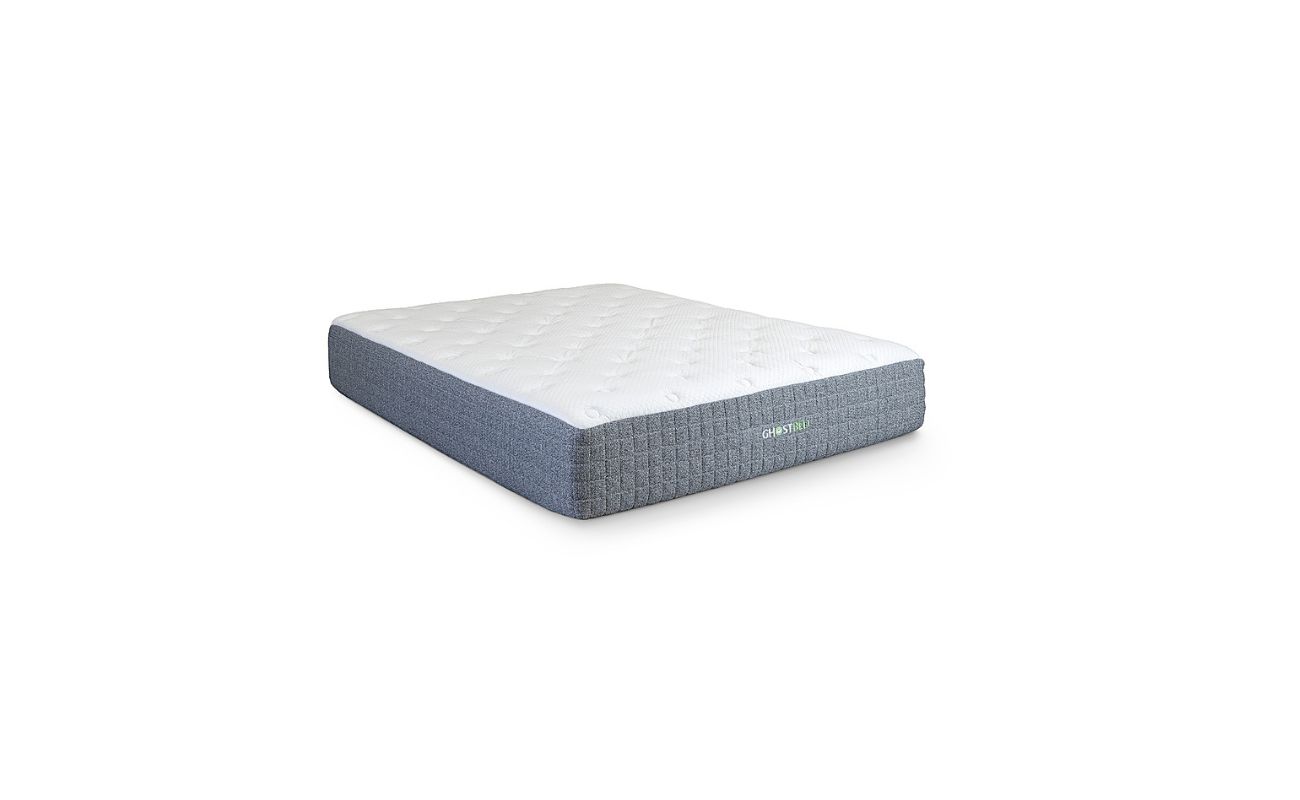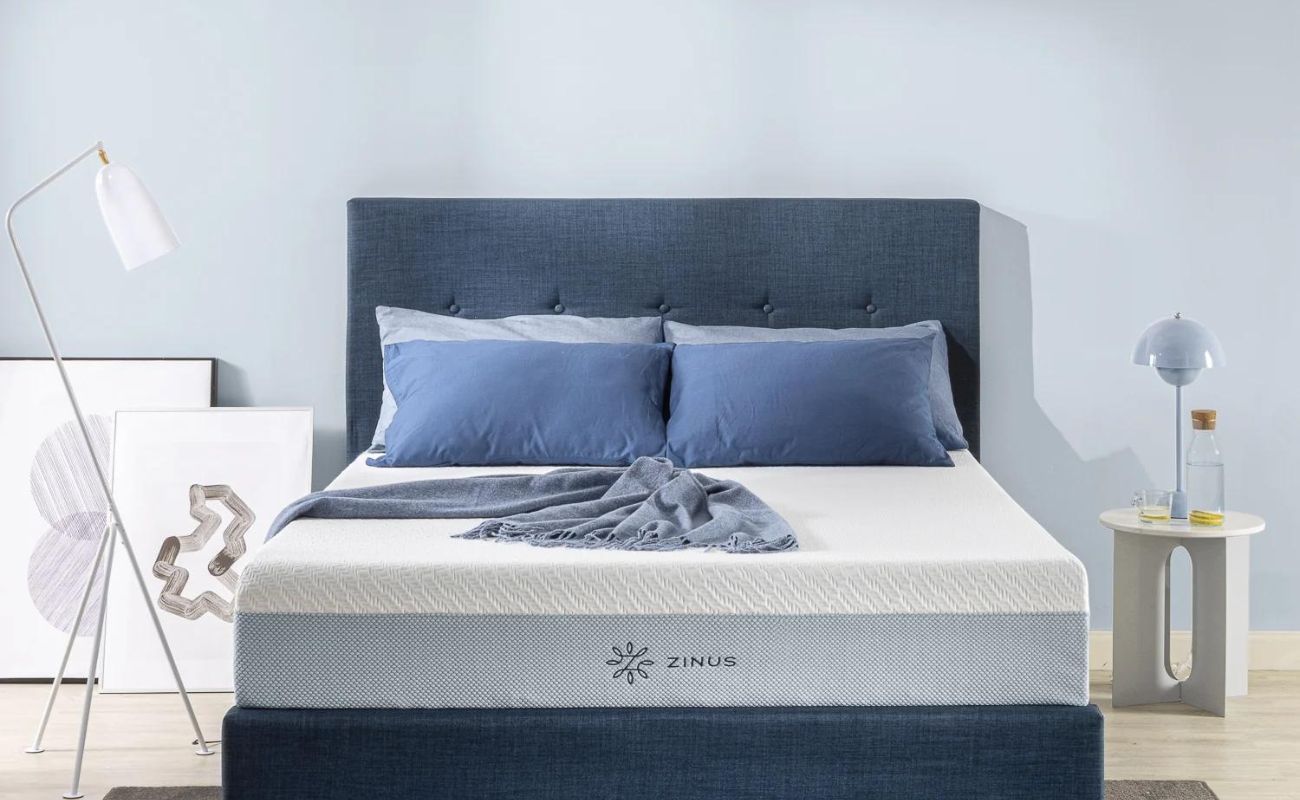Home>Furniture>Bedroom Furniture>How Long Are Mattress Warranties


Bedroom Furniture
How Long Are Mattress Warranties
Modified: December 7, 2023
Discover the length of mattress warranties in our comprehensive guide to bedroom furniture. Make informed decisions for your bedroom with our expert advice.
(Many of the links in this article redirect to a specific reviewed product. Your purchase of these products through affiliate links helps to generate commission for Storables.com, at no extra cost. Learn more)
Introduction
Choosing the right mattress is a crucial decision, as it directly impacts the quality of our sleep and overall well-being. It’s an investment that we want to last for years to come. That’s where mattress warranties come into play. When purchasing a new mattress, understanding the warranty terms and length can help ensure you make a wise decision.
A mattress warranty provides you with protection and peace of mind, assuring you that the manufacturer stands behind the quality and durability of their product. In the event of any defects or issues, the warranty can cover repairs or replacements.
However, mattress warranties can be overwhelming, with complex terms and conditions that vary from brand to brand. To make an informed decision, it’s important to understand the key aspects of a mattress warranty.
This article will guide you through the world of mattress warranties, helping you understand their terms, common types, and the factors that determine their length. By the end, you’ll have a better understanding of how to evaluate warranty length and leverage it to your advantage.
Key Takeaways:
- Understanding mattress warranties is crucial for protecting your investment. Consider factors like warranty length, coverage types, and maintenance requirements to make an informed decision when purchasing a new mattress.
- While warranty length is important, it’s not the sole factor to consider. Prioritize quality, brand reputation, and your specific usage needs when evaluating mattress warranties. Maximize your coverage by following maintenance guidelines and addressing issues promptly.
Read more: How Long Is A Roof Warranty
What is a mattress warranty?
A mattress warranty is a guarantee provided by the manufacturer or retailer that ensures the quality and durability of the mattress. It serves as a form of protection for consumers in the event of any defects or issues that may arise during the specified warranty period.
The specifics of a mattress warranty can vary depending on the brand and model, but they typically cover manufacturing defects, such as sagging, coil breakage, or issues with the mattress materials. However, it’s important to note that not all potential issues are covered by a warranty. Normal wear and tear, stains, physical damage, or discomfort preferences are generally not covered.
Warranties can differ in their terms and conditions, so it’s crucial to carefully review the warranty before making a purchase. Look for details regarding the length of the warranty, what is specifically covered, any exclusions or limitations, and the process for filing a warranty claim.
Additionally, it’s essential to understand that a mattress warranty does not necessarily guarantee the lifetime of the mattress. Instead, it provides coverage for a specific period of time, usually ranging from 5 to 20 years, depending on the brand and model. It’s important to familiarize yourself with these specifics to ensure your expectations align with what the warranty offers.
Overall, a mattress warranty is designed to provide consumers with confidence in the longevity and quality of their mattress purchase. However, it’s vital to read and understand the terms and conditions to fully grasp the coverage and limitations provided by the warranty.
Understanding the terms and conditions
When it comes to mattress warranties, understanding the terms and conditions is crucial to ensure you are aware of what is covered and what is not. Here are some key factors to consider:
Length of Warranty: The length of a mattress warranty can vary significantly depending on the brand and model. It’s essential to know how long the warranty coverage lasts. Common warranty lengths range from 5 to 20 years, with some brands offering even longer warranties for specific mattress models.
Prorated vs. Non-prorated: Many mattress warranties are prorated, meaning that the coverage decreases over time. With a prorated warranty, the manufacturer may offer full replacement or repair during the initial years but may require you to pay a certain percentage for repairs or replacements in the later years. Non-prorated warranties, on the other hand, offer full coverage throughout the specified warranty period.
Covered Issues: The warranty should clearly state what issues are covered, such as sagging beyond a certain depth, spring malfunctions, or defects in materials. It’s important to understand the specific criteria for filing a warranty claim.
Exclusions and Limitations: Be aware of any exclusions or limitations mentioned in the warranty. For example, some warranties may not cover damage resulting from improper use, stains, or normal wear and tear. Understanding these limitations can prevent any unexpected surprises down the line.
Requirements for Filing a Claim: Familiarize yourself with the process for filing a warranty claim. Is there specific documentation required? Are there any fees or shipping costs associated with filing a claim? Knowing these details can simplify the process if you ever need to utilize the warranty.
Maintaining the Mattress: Check if the warranty requires any specific maintenance guidelines to be followed, such as using a mattress protector or rotating the mattress regularly. Failure to adhere to these guidelines could void the warranty, so it’s crucial to be aware of any maintenance requirements.
Understanding these terms and conditions is essential for maximizing the benefits of your mattress warranty. Take the time to carefully read and comprehend the warranty documentation before making a purchase to ensure you are making an informed decision.
Common types of mattress warranties
When it comes to mattress warranties, there are a few common types that you may come across. Understanding these types can help you navigate the warranty landscape more effectively. Here are some of the common types of mattress warranties:
Full Replacement Warranty: This type of warranty provides coverage for a certain period of time, typically stated in the warranty documentation. If a defect or issue arises within the specified warranty period, the manufacturer or retailer will provide a full replacement mattress free of charge. It’s important to check if the warranty covers the full cost of the replacement or if there are any prorated charges involved.
Prorated Warranty: In a prorated warranty, the coverage decreases over time. This means that if a defect or issue arises after the initial years of the warranty, you may be responsible for a percentage of the repair or replacement costs. The prorated charges vary depending on the brand and model, so it’s important to understand the terms and how they may affect you in the long run.
Repair Warranty: Some mattress warranties specifically cover repairs rather than replacements. If a defect or issue arises within the warranty period, the manufacturer or retailer will arrange for the necessary repairs to rectify the problem. This can be a cost-effective option if the issue can be easily fixed without needing a full replacement.
Extended Warranty: An extended warranty is an additional warranty that can be purchased separately. It extends the coverage beyond the standard warranty period, providing additional protection and peace of mind. Extended warranties vary in terms of length and coverage, so it’s essential to carefully review the details before opting for this type of warranty.
Limited Warranty: A limited warranty typically covers specific aspects of the mattress, such as manufacturing defects or certain materials, while excluding other issues. It’s important to review the limitations and exclusions mentioned in the warranty to understand what is specifically covered.
It’s worth noting that the availability of different warranty types can vary depending on the brand and model of the mattress. Some brands may offer a combination of these types, providing more flexibility and options for consumers.
As you explore different mattresses and their warranties, carefully consider which type of warranty best suits your needs and preferences. Be sure to read and understand the terms and conditions of the warranty before making a purchase to ensure you are confident in your choice.
Length of mattress warranties
The length of a mattress warranty refers to the duration of time that the warranty coverage remains valid. Warranties can vary in length depending on the brand, model, and type of mattress. While there is no universal standard for warranty length, there are some common ranges that you can expect to encounter.
Generally, mattress warranties can range from 5 to 20 years. However, it’s important to note that longer warranties may be offered for specific mattress models or brands that prioritize durability and quality.
The length of a mattress warranty is an important factor to consider when making a purchase decision. A longer warranty period can provide you with more extended coverage and protection for potential issues that may arise. It can also be an indicator of the manufacturer’s confidence in the longevity of their product.
While a longer warranty might seem enticing, it’s essential to evaluate the warranty length in conjunction with other factors. Consider the overall reputation of the brand, customer reviews, and the quality of materials used in the mattress. A shorter warranty from a reputable brand with high-quality materials may still be a reliable choice.
When comparing warranty lengths, pay attention to any variations within the same brand or model. Some mattress manufacturers may offer different warranty lengths for specific components of the mattress, such as the foam layers or springs. Understanding these details can give you a more comprehensive view of the coverage.
It’s also important to be aware that warranty length alone does not necessarily guarantee the lifespan of a mattress. The actual longevity of a mattress will depend on various factors, including usage, care, and the quality of construction. However, a longer warranty can provide you with added peace of mind.
Ultimately, when assessing the length of a mattress warranty, it’s crucial to consider it alongside other aspects of the warranty, such as prorated vs. non-prorated coverage, covered issues, and any limitations or exclusions. By taking a holistic approach to warranty evaluation, you can make an informed decision and choose a mattress that aligns with your specific needs and expectations.
When shopping for a mattress, check the length of the warranty. Most mattresses come with a 10-year warranty, but some may offer longer or shorter coverage. Be sure to understand what is covered and for how long before making a purchase.
Read more: How Long Are HVAC Warranties
Factors that affect warranty length
The length of a mattress warranty can vary depending on several factors. Understanding these factors can help you better evaluate the warranty and make an informed decision. Here are some key factors that can affect warranty length:
Brand and Model: Different mattress brands and models may offer varying warranty lengths. Established brands with a reputation for quality and durability may provide longer warranties to instill confidence in their products. Similarly, certain mattress models specifically designed with durable materials or advanced features may come with extended warranty coverage.
Materials and Construction: The quality of materials used in a mattress and its construction can influence the warranty length. High-quality materials and superior craftsmanship often result in mattresses with longer warranty periods. Brands that utilize premium materials, such as natural latex or high-density memory foam, may provide longer warranties due to the material’s durability and long-lasting performance.
Price Range: The price range of a mattress can be a determining factor in the warranty length. Generally, higher-priced mattresses tend to come with longer warranty coverage. This is because the increased price often reflects better quality materials and more robust construction, which in turn justify a more extended warranty period.
Intended Usage: The intended usage of a mattress can impact the warranty length. Mattresses used for residential purposes, such as in a personal bedroom, typically come with longer warranties compared to mattresses used in commercial settings such as hotels or vacation rentals. Increased usage and wear and tear associated with commercial environments often result in shorter warranty coverage.
Maintenance Requirements: Some warranties may have specific maintenance requirements that need to be followed to maintain warranty coverage. These requirements could include using a mattress protector, rotating the mattress regularly, or avoiding certain types of cleaning products. Failure to adhere to these maintenance guidelines could void the warranty, so it’s essential to be aware of any such requirements.
Environmental Factors: Environmental factors such as humidity, extreme temperatures, or exposure to moisture can impact the lifespan of a mattress. In regions with harsh climate conditions, manufacturers may limit the warranty coverage due to the increased likelihood of damage or accelerated wear and tear.
It’s important to note that these factors can vary from brand to brand and model to model. Therefore, always carefully review the warranty documentation and consult with the manufacturer or retailer to gain a clear understanding of how these factors may influence the warranty length for the specific mattress you are considering.
By considering these factors, you can determine the warranty length that best aligns with your needs and expectations. A longer warranty period combined with reputable brand reputation and high-quality materials can provide additional confidence in your mattress investment.
Should you prioritize warranty length?
When purchasing a mattress, it’s natural to consider the warranty length as an important factor in decision-making. However, while warranty length is certainly a consideration, it should not be the sole determining factor. Here are some points to consider when assessing the importance of warranty length:
Quality and Durability: Warranty length does not necessarily guarantee the quality or durability of a mattress. A longer warranty may be an indicator of the manufacturer’s confidence in their product, but it’s important to also evaluate other factors such as the brand’s reputation, customer reviews, and the materials used in the mattress. A shorter warranty from a reputable brand with high-quality construction and materials can still offer excellent longevity.
Usage and Lifestyle: Consider how the mattress will be used in your specific lifestyle. If it will be used in a spare bedroom or guest room that experiences less frequent use, warranty length may be of lower priority. However, if the mattress will be used daily as your primary sleep surface, then a longer warranty may provide you with peace of mind and added protection for potential issues that may arise over time.
Company Policies and Support: Look beyond just the warranty length and consider the overall support and policies offered by the manufacturer or retailer. Pay attention to the company’s reputation for customer service and their responsiveness to warranty claims. A longer warranty is beneficial, but it’s also important to know that the company will stand behind their warranty and provide the necessary support if needed.
Your Specific Needs and Preferences: Ultimately, the decision should be based on your specific needs and preferences. If warranty length is a top priority for you, then it’s reasonable to prioritize longer warranties. However, if other factors such as comfort, materials, or price are of greater importance, you may be willing to compromise on the length of the warranty.
Other Warranty Factors: Instead of solely focusing on the length of the warranty, consider other factors such as whether the warranty is prorated or non-prorated, what issues are covered, any limitations or exclusions, and the process for filing a warranty claim. These factors can significantly impact the overall value and reliability of the warranty coverage.
In summary, while warranty length can provide a certain level of reassurance, it should not be the sole basis for choosing a mattress. Consider the overall quality, reputation of the manufacturer, your specific usage needs, and the company’s support policies. By taking a holistic approach to mattress selection, you can find a mattress that meets your needs while providing the peace of mind you desire.
Tips for making the most of your mattress warranty
When it comes to mattress warranties, there are some tips that can help you make the most of your coverage. By following these guidelines, you can ensure that your mattress warranty remains valid and that you are prepared if any issues arise. Here are some tips to keep in mind:
Read and Understand the Warranty: Take the time to thoroughly read and understand the warranty documentation before making a purchase. Familiarize yourself with the terms, conditions, coverage, limitations, and exclusions. Understanding the warranty will help you know what to expect and how to properly utilize it if needed.
Register Your Mattress: Many mattress warranties require you to register your mattress after purchase. This step is crucial, as it confirms your warranty and enables you to make warranty claims if necessary. Make sure to follow the specific registration process outlined by the manufacturer.
Keep Proof of Purchase: It’s important to keep your proof of purchase, such as the sales receipt or invoice. This documentation serves as evidence of your ownership and is often required when filing a warranty claim. Store it in a safe place so that it’s easily accessible if needed.
Follow Maintenance Recommendations: Most mattress warranties have specific maintenance recommendations that need to be followed to maintain the warranty’s validity. This may include using a mattress protector, rotating the mattress regularly, or adhering to weight limits. Failure to comply with these guidelines could void the warranty, so be diligent in maintaining your mattress according to these recommendations.
Keep Your Mattress in Good Condition: While normal wear and tear may not be covered under the warranty, taking proper care of your mattress can extend its overall lifespan. Follow the manufacturer’s care instructions, including cleaning guidelines, and avoid any actions that could damage the mattress, such as jumping or standing on it.
Address Issues Promptly: If you notice any potential issues or defects with your mattress, address them promptly. Contact the manufacturer or retailer as soon as possible to report the problem and inquire about the procedure for filing a warranty claim. Delaying the process could result in a longer resolution time or potential complications with the warranty coverage.
Document the Issue: When filing a warranty claim, it can be helpful to provide documentation of the issue. Take clear photos of the problem, noting any specific details or measurements. This evidence can strengthen your claim and facilitate a smoother resolution process.
Follow the Warranty Claim Process: Each warranty will have its own specific process for filing a claim. Familiarize yourself with the steps involved and follow them accordingly. This may include contacting customer support, submitting documentation, or arranging for inspections or repairs. Adhering to the proper procedure will help ensure a streamlined and successful warranty claim.
Keep Communication Records: Throughout the warranty claim process, it’s important to keep records of all communications with the manufacturer or retailer. Note down dates, names of representatives you speak with, and any relevant details discussed. These records can be valuable for reference and documentation if any issues arise during the claim process.
By following these tips, you can maximize the benefits of your mattress warranty and ensure that you are prepared to address any potential issues that may arise. Remember that each warranty is unique, so be sure to review and understand the specific guidelines provided by the manufacturer.
Conclusion
Choosing the right mattress is a significant investment, and understanding the warranty terms and conditions is essential to protect that investment. A mattress warranty provides you with peace of mind, knowing that the manufacturer stands behind the quality and durability of their product. By considering the factors that affect warranty length, understanding the types of warranties available, and prioritizing your specific needs, you can make an informed decision.
Remember that warranty length is just one aspect to consider when evaluating a mattress warranty. The overall quality, reputation of the brand, materials used, and company policies and support are also important factors to take into account. Prioritize warranty length based on your unique circumstances, keeping in mind how the mattress will be used and the level of usage it will endure.
To make the most of your mattress warranty, read and understand the warranty documentation, register your mattress, and keep proof of purchase. Follow maintenance recommendations to ensure compliance with the warranty terms, and promptly address any potential issues that arise. By documenting the problem and following the appropriate warranty claim process, you can work towards a resolution if needed.
Ultimately, a mattress warranty is a valuable protection plan that offers reassurance and support for your mattress investment. By taking the time to understand the warranty coverage, following the recommended tips, and maintaining your mattress properly, you can rest easy knowing that your mattress is covered and you are prepared in case any issues arise.
So, as you embark on your mattress shopping journey, remember to consider the warranty as an important factor alongside comfort, materials, and other features. By finding the right balance, you can choose a mattress that not only provides exceptional comfort but also ensures long-lasting durability.
Frequently Asked Questions about How Long Are Mattress Warranties
Was this page helpful?
At Storables.com, we guarantee accurate and reliable information. Our content, validated by Expert Board Contributors, is crafted following stringent Editorial Policies. We're committed to providing you with well-researched, expert-backed insights for all your informational needs.
